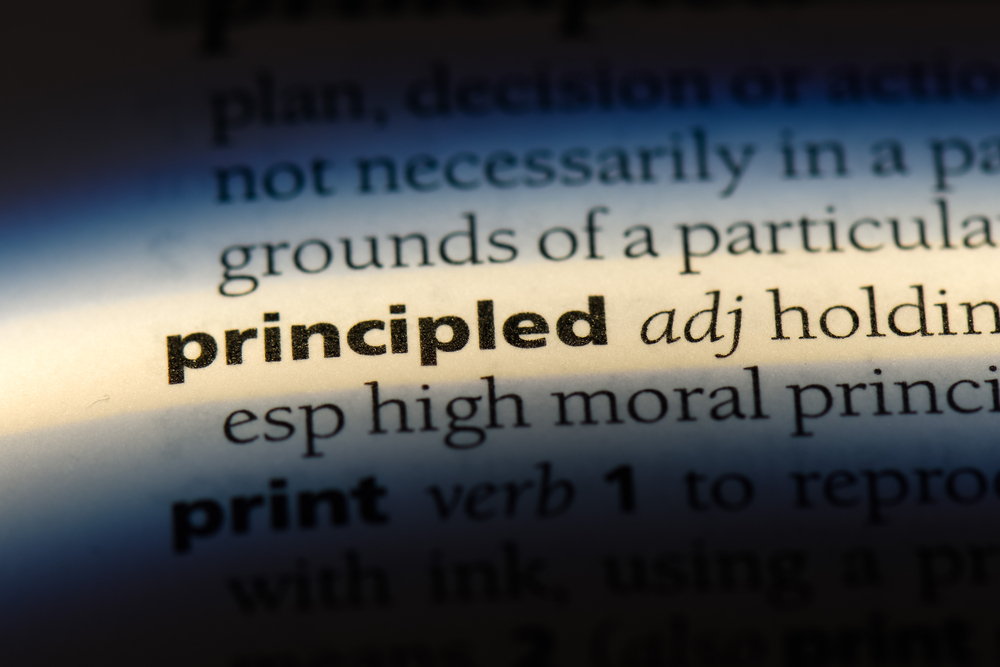
It’s not often that a local or regional organization of any stripe turns its back on an offer of state or federal money, particularly when a cash-strapped social service is offered a sizable chunk of change.
But that’s exactly what happened at Idaho’s latest Southwest District Health (SWDH) Board of Commissioners meeting, held on July 23, 2024. The reasons for the thumbs-down on the federal funds, which we will articulate below, are both noteworthy and newsworthy. They point to the current state of affairs facing public health officials.
Be it an anomaly or the start of a positive trend that reflects greater awareness of the need for public accountability, the commissioners on the SWDH board should be applauded for their forthright assessment of the proposal put before them and for the principled stand they took in rejecting the enticement of “free money.”
The three-hour meeting opened up in standard fashion: call to order, Pledge of Allegiance, roll call, agenda approval, and an opening discussion. This was followed by board business items, all attended to in ordinary fashion.
At the one-hour, 58-minute mark, SWDH Public Health Program Manager Charlene Cariou was introduced. She gave a presentation about a funding opportunity for the SWDH commissioners to consider. Her proposal was titled “Services to Support COVID-19 Vaccination.” As she would soon discover, the proposal was met with overt disapproval by the board.
Cariou opened her presentation by explaining how the Idaho Department of Health and Welfare (IDHW) received funding in 2020 to support “certain covid activities designed to increase access to covid-19 vaccinations and build community relationships.” She added that this funding was originally allocated as a “one-time-only offer” and was set to expire in June 2024.
She then announced that she had received notification in May 2024 of an opportunity for IDHW to obtain additional funding— specifically for the Idaho immunization program—through a “one-time-only extension.”
Cariou characterized the most recent offer as “an opportunity to engage in a new sub-grant.” She called attention to the fact that the funding coming through the Idaho Department of Health originated from the US Centers for Disease Control and Prevention (CDC) and its immunization program.
Through an instructional video presentation, Cariou provided a brief overview (see page 27) of what the “Services to Support COVID-19 Vaccination” program would entail:
- Cooperative Agreement/General Objectives: To assist states and communities in establishing and maintaining preventive health service programs to immunize individuals against vaccine-preventable diseases
- Funding Timeline: Upon signature of agreement through 4/30/2025
- Funding Source: Pass-through from IDHW, originated from an Immunization Cooperative Agreement between the US Department of Health and Human Services (HHS) and the CDC’s Vaccines for Children Program (VCP).
- Funding Amount: Up to $620,000 available, but requesting $448,400*
- Sub-grant Scope of Work/General Activity Categories: All activities must align with at least one of the categories below. [Emphasis added.] However, under this program, SWDH would develop and propose activities that best serve its communities while still meeting overall funding objectives. These activities include:
- COVID-19 vaccine operation expansion and improved accessibility
- COVID-19 vaccine equity, engagement, and education
- Accessibility (that is, new vaccination sites, improved website accessibility, and patient registration processes)
- Community engagement
- Interdepartmental coordination
- Staffing
- Trusted messengers
*Cariou noted that the cited $448,000 was a typo; the actual figure would be $488,000.
At the conclusion of her presentation, Cariou opened the discussion by asking board members to voice their thoughts, share ideas, and raise any questions they have.
Commissioner Zach Brooks got the ball rolling, diplomatically expressing his thumbs-down on the program:
“We have discussed [that] it's painful to keep reliving covid stuff. We have discussed that we would like to move forward and not go backwards and keep rehashing it. So, I'm of the opinion that I want nothing that looks, feels, smells, tastes of anything covid.”
Brooks added categorically, “I am also very thankful that nobody in my community has seen this page to light my communication methods up. I appreciate it but I would like it to not come back.” In plain English: If his constituents had caught wind of this proposal, they would have demanded that Brooks reject it, and he doesn’t want to see similar proposals again.
Without skipping a beat, physician representative John Tribble, MD, voiced his support for Commissioner Brooks’ sentiments:
“I would second what you’re saying there. I think there are several things I have concerns with on this—one being it’s a bit disingenuous [to have] the title down as to what they’re actually funding and then not having any flexibility to change that title is concerning or allowing us the ability to independently or personally adjust how we spend that money. So, for that reason, among others, you know that we don’t necessarily have to go into if we’re all in agreement: No. I don’t really support anything at this point that spends government funds on covid vaccination.”
Another board member voiced his misgivings about the potential motives for this government handout. “I’m trying to look through this [and ask], What’s the real goal here?” he said. “It’s almost like they have covid-19 money they need to get rid of. This looks like covid-19 money that they’re just looking to get off the books.”
When asked her opinion, Board of Health executive council representative Viki Purdy clearly stated her position:
“I support Commissioner Brooks’ verbiage in every way. I want this to go away. This has done so much damage. I don’t think we need to message it anymore.”
In solidarity with the rest of the board, Vice-Chairman Lyndon Haines expressed his lack of interest in the proposal:
“I agree with the rest of the board. I think at this point in time, if it’s going to carry the title of covid-19, I don’t think we're going to build trust with the people in our community, which sounded like [it] was part of the goal. I don’t think we’ll build trust, I think we’ll build suspicion.”
Board of Health Chairman and Trustee Kelly Aberasturi reinforced the unanimity of the board's distaste for the program:
“I agree with everybody. [. . .] I know that if we try to do this with covid-19 for this District, citizens that I know in all the different areas I know would not support a covid-19 anything, because they totally disagree with how that was managed. I think it’s pretty much unanimous with the board that we do not want to move forward [with this proposal].”
As a coda to the covid funding proposal, Dr. Tribble suggested it might be a worthy endeavor to review how taxpayer funds are being used for covid vaccinations so that the public can gain a better understanding of exactly how and where their tax dollars are being spent. His suggestion was met with interest in it being a future agenda item.
At a time when the inordinate spending of public money and the real motives for that spending are often concealed from the public, it’s more important than ever to look at the fine print to ascertain why the money is being offered, where that money comes from, and how it is being spent.
When a few hundred thousand dollars of “free money” is put on the table, it is generally considered “an offer that can’t be refused.” It’s also an offer considered “too good to be true,” since one can assume with near certainty that it comes with clauses and conditions.
Over the past four years, the strings attached to the covid cash were laid bare by the covid-19 money trail. It revealed, among many things, the undue influence that federal relief monies have on district and regional health policies, on nationwide hospital policies, and even on school policies.
That Idaho’s Southwest District Health Board of Commissioners rejected the allure of additional covid lucre and did so in a principled and unequivocal manner is deserving of the public’s attention and applause.
May this moment be a small move towards greater control of public health policy by local citizens and the local officials they have appointed or elected to intelligently represent them.














